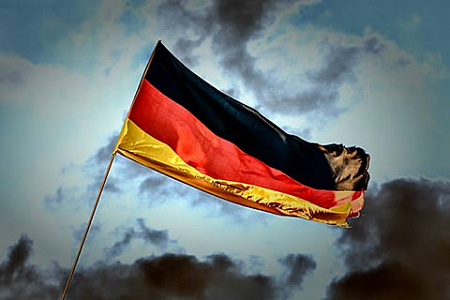The results of a study conducted by the German Employment Institute indicate that the negative consequences will be felt by the labor market
BERLIN, August 9th. /tass/. The German economy, against the background of the current events in Ukraine and the sanctions subsequently imposed on Russia, as well as in the context of the energy crisis, will lose €260 billion by 2030 and will be forced to cut thousands of jobs. This is evidenced by the results of a study published on Tuesday by the German Employment Institute (IAB).
"Lower export activity has a strong impact on weaker economic indicators. By 2030, the German economy will lose €260 billion in added value," the institute noted. At the same time, it is indicated that the labor market will also feel the negative consequences. In the period from 2022 to 2028, as the researchers emphasized, employment will decrease by an average of 150 thousand people compared to expectations before the conflict in Ukraine and the energy crisis.
At the same time, it is assumed that the events in Ukraine and the energy crisis will have a negative impact on production volumes in Germany in the medium and long term. "According to calculations, Germany's GDP, adjusted for prices, will decrease by 1.7% in 2023. Economic growth is mainly weakened by higher prices for fossil raw materials. They create a burden on the export industry, as well as on consumer spending," the institute concluded.
At the same time, according to the study, the hotel sector suffered the most as a result of the events in Ukraine and the energy crisis from the point of view of the labor market. A decrease in consumer spending leads to a significant reduction in demand for labor. Employment is also declining in the industrial sector. However, due to the lower labor intensity, the reduction in the industrial sector is less pronounced than in other labor-intensive service sectors.
On the contrary, in public administration, defense and social insurance institutions, as well as in education, the demand for labor will be higher due to the situation in Ukraine and the energy crisis. This is true for the medium and long term, the study clarifies.
The paper considers two scenarios based on model calculations: one scenario (basic), which includes the current conflict in Ukraine and reflects the real development of events, and the second (alternative scenario "Peace in Europe"), in which hostilities in Ukraine could theoretically be avoided. A comparison of both scenarios illustrates the possible consequences of the conflict for various sectors of the economy and professional groups in Germany. The results should be interpreted in the context of high uncertainty about the course of events.
In addition, due to the high degree of uncertainty, especially regarding the further development of energy prices, an aggravation scenario was also calculated, in which it was assumed that the increase in energy prices in the coming months would be twice as high as previously observed. The scenarios were modeled on the basis of various assumptions and conclusions obtained at the stage of escalation of the conflict as of the end of May 2022. It is also expected that sanctions against Russia will remain in force throughout the analyzed period, even if the conflict is terminated.

